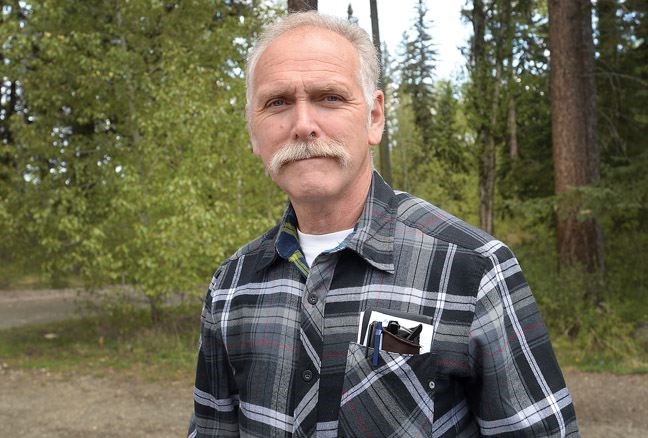A Blackburn resident is upset with Health Canada's approach to medical marijuana licensing, which has placed the problem - and the stink - in his backyard.
Lee Sexsmith said he understands the rules are shifting around pot use, but said the large grow operation is too close to his residential neighbourhood.
"When they get cropping, it smells for a week or more," said Sexmith, who started noticing the smell about 18 months ago from the nearby home.
"It affects property values," he said. "How would you like to own a place next to that and watch your property value sink? That is the entrance to our neighbourhood."
Sexsmith has reached out to the city, local MLA's and Health Minister Jane Philpott to see if anything can be done, but the city said its hands are tied.
"This medical marijuana grow-operation was approved under the old federal government legislation. We don't have any control over that," said planning and development general manager Ian Wells.
Under the old regulation, licensed producers like the one in Blackburn, "generally operated without any local government approvals," he said.
As it stands, the zoning for the area doesn't support it.
"We wanted to keep it away from residential uses or setbacks from residential. It's just not appropriate in that location," said Wells. "If they were to make an application today, it wouldn't be allowed on that site."
The city allows for weed to be grown in certain light industrial areas, like the Boundary and BCR sites, Wells added.
But the courts have been clear that previously licensed producers, including medical marijuana patients, have a right to grow cannabis.
"They're allowed to continue with their operations," said Wells, adding the growers are under no obligation to notify the city. "We don't actually know where they are in most cases."
The Marijuana for Medical Purposes Regulations, last amended in June 2015, say licensed producers "must notify their local government, local police force, and local fire officials of their intention to apply to Health Canada, so that local authorities are aware of their proposed location and activities."
It restricts activities to commercial growers, which must also meet extensive security requirements.
Sexmith would like to see Health Canada step aside and leave it to the municipalities to determine what's appropriate.
"Why is Health Canada stepping all over the city? The city basically responds to the input for the public. They get elected to follow us. I think Health Canada should step aside. I think they're out of their league here."
In reality, Health Canada will have to step in front of the issue and craft new regulations by August 2016, after a Federal Court gave the Liberal government a deadline to regulate both old and new growers.
In the meantime, Prince George city staff will be reaching out to the federal government to see what can be done.
"We'll just be working with them on what powers they have to regulate smell and things like that," Wells said.
At the very least Sexsmith's fears that the existing operation could expand seem to be misplaced.
He said there's enough space on the Blackburn property to grow beyond the 900 plants RCMP and the city told him the owner was licensed to produce.
That won't be the case, Wells said, because growers under the old regulations must still operate within the parameters of their production license, including plants, storage area and the approved address.
"Essentially, their license has frozen in time," said Wells, adding any complaints about producers who aren't compliant with requirements should be made directly to Health Canada.



.png;w=120;h=80;mode=crop)